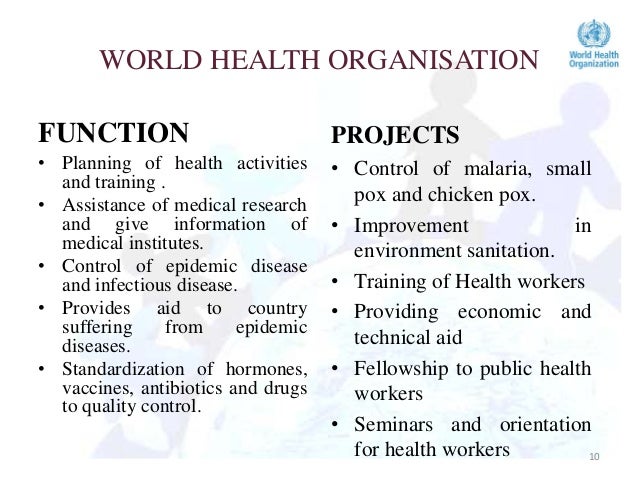World Health Organization & its Relevance
Relevance: Prelims/Mains: G.S paper II: International
Context:
Coronavirus pandemic has infected more than 19 million people, claimed over 0.7 million lives and devastated economies. As the pandemic transcends geopolitical boundaries the role played by WHO is questioned.
| World Health Organisation (WHO) |
Its main areas of work are health systems; health through the life-course; noncommunicable and communicable diseases; preparedness, surveillance and response; and corporate services. WHO’s functions:
Membership:
|
Criticism of role played by WHO amid the pandemic
Slow response:
With the necessary arrangements of regional offices in six geographical regions and country offices across 150 countries, the WHO was expected to play the dual role of a think tank and oversee global responses to public health emergencies.
The earliest COVID-19 positive case in China was reported in November 2019 but China informed the WHO about the disease only in January.
With the WHO country representative stationed in Beijing, it is unlikely that widespread transmission went unnoticed.
Ignoring hints by other countries
-
- Even though confirmed COVID-19 cases were reported from Japan, South Korea, Taiwan, and the U.S. in January 2020 the WHO continued to downplay the severity of the virus.
- WHO is also alleged to be ignoring Taiwan’s hints of human-to-human transmission and requests on sharing “relevant information”.
No proactive role
WHO has been reduced to a coordinating body, beholden to the interests of rich member states.
The functional efficiency of WHO has been disadvantaged with
-
-
-
- Organisational lethargy,
- Absence of decisive leadership,
- Bureaucratic indolence,
- Underfunded programmes, and
- Inability to evolve to meet the needs of the 21st century.
- Role played by Director-General Tedros Adhanom has also been criticised for his leadership abilities during this pandemic.
-
-
- Favouring a donor-driven agenda:
- WHO is funded through assessed contributions made by the member states and voluntary contributions from member states and private donors.
- While assessed contributions can be spent as per the organisation’s priorities approved at the World Health Assembly, the irregular voluntary contributions are allocated in consultation with the donors.
- While voluntary contributions accounted for nearly 80% of the budget in 2018-19, assessed contributions merely constituted 17% of the total budgetary support.
- The challenges owing to constrained finances encumber autonomy in decision-making by favouring a donor-driven agenda.
Conclusion:
- While the WHO has failed in arresting the COVID-19 pandemic, governments across the globe are equally responsible for their inept handling and ill-preparedness.
- However, that does not vindicate the WHO’s inadequate response in handling the crisis. Many countries, especially in Africa and Asia, rely predominantly on the WHO for enforcing policy decisions governing public health. Political leanings and financial compulsions of WHO cannot betray that trust.
The burden of the expectations of the countries must weigh heavily on every policy decision taken by the global health agency, for when the WHO fails, many innocent lives are lost.
For more such notes, Articles, News & Views Join our Telegram Channel.
Click the link below to see the details about the UPSC –Civils courses offered by Triumph IAS. https://triumphias.com/pages-all-courses.php



One comment